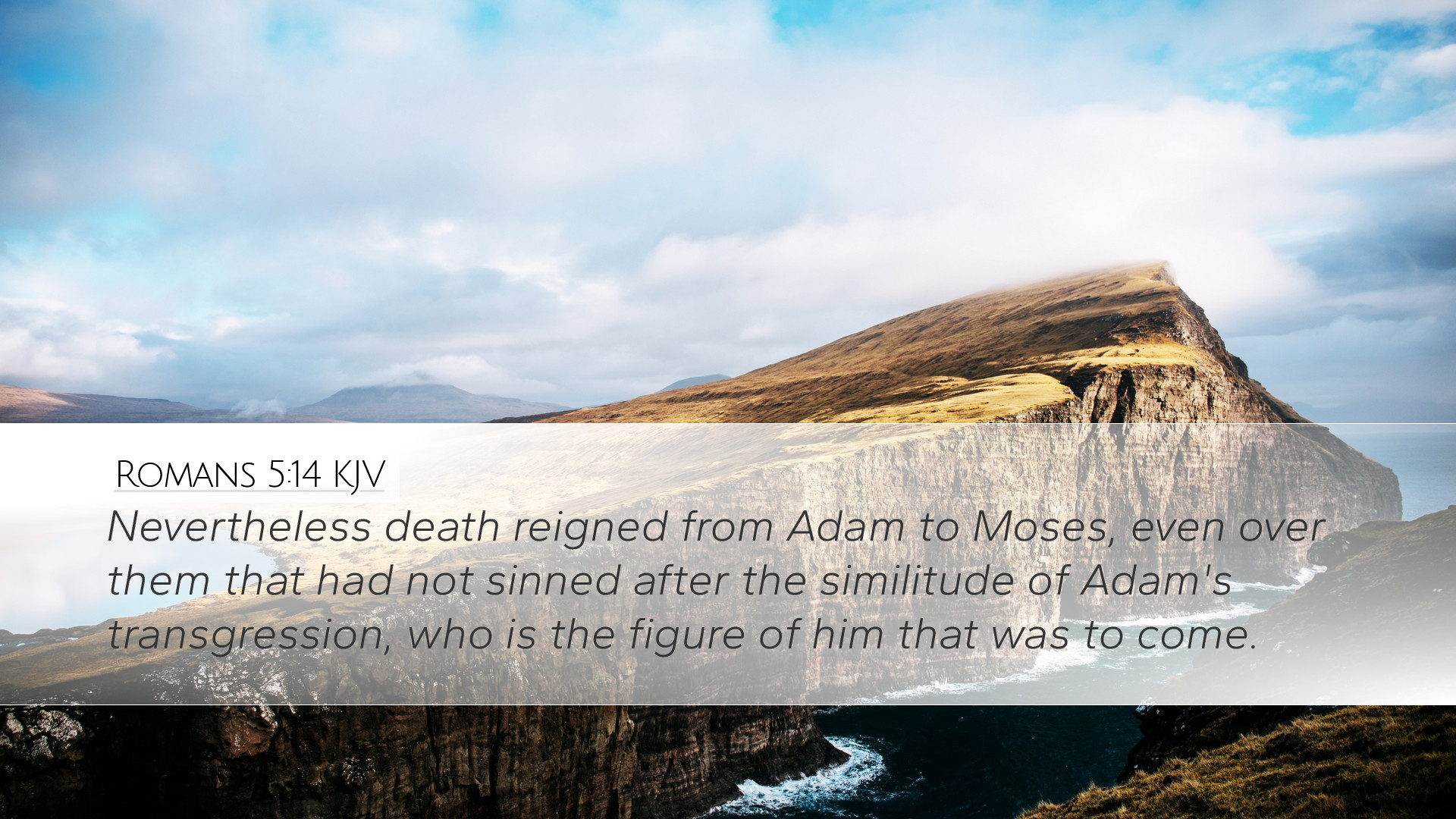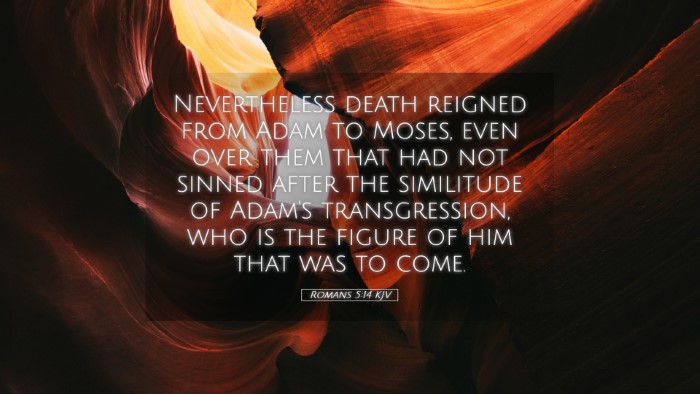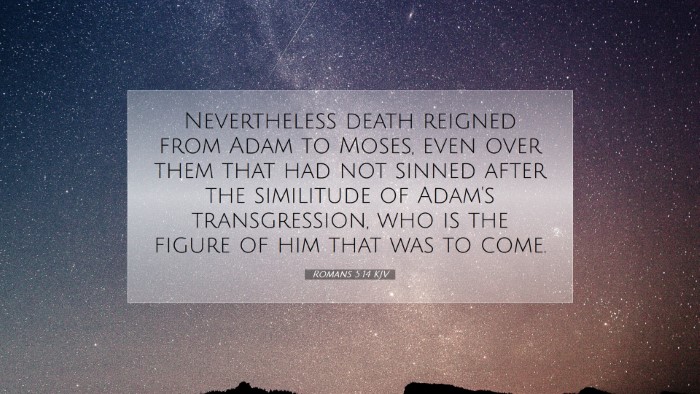Old Testament
Genesis Exodus Leviticus Numbers Deuteronomy Joshua Judges Ruth 1 Samuel 2 Samuel 1 Kings 2 Kings 1 Chronicles 2 Chronicles Ezra Nehemiah Esther Job Psalms Proverbs Ecclesiastes Song of Solomon Isaiah Jeremiah Lamentations Ezekiel Daniel Hosea Joel Amos Obadiah Jonah Micah Nahum Habakkuk Zephaniah Haggai Zechariah MalachiRomans 5:14
Romans 5:14 KJV
Nevertheless death reigned from Adam to Moses, even over them that had not sinned after the similitude of Adam's transgression, who is the figure of him that was to come.
Romans 5:14 Bible Commentary
Commentary on Romans 5:14
Text of Romans 5:14 (ESV): "Yet death reigned from Adam to Moses, even over those whose sinning was not like the transgression of Adam, who was a type of the one who was to come."
Introduction
This verse serves as a pivotal point in the Apostle Paul's argument about sin, death, and redemption. It emphasizes the reign of death as a result of Adam's transgression while also delineating the distinction between Adam's sin and the sins of those who came after him. The insights derived from the commentaries of Matthew Henry, Albert Barnes, and Adam Clarke will elucidate the theological depth of this verse.
Contextual Framework
The Apostle Paul, in his epistle to the Romans, outline the doctrine of justification by faith and the expansive implications of Adam's sin on humanity. Here, he introduces the significant theological concept of sin and its consequences, noting that death has dominion over all mankind, tracing it back to Adam.
Death as a Sovereign Power
Henry draws attention to the metaphor of death as a reigning monarch; he emphasizes that death's tyranny extends not just to Adam's direct descendants but to all humanity, underscoring the universal experience of death as a consequence of sin.
Barnes states that the reign of death continues from Adam until Moses, highlighting the universality of death's dominion. This reign is not merely physical death but also spiritual separation from God, presenting a stark reality of sin's effect.
Sin and Its Nature
According to Clarke, there is a notable distinction between Adam's transgression and the subsequent sins of humanity. Unlike Adam, who acted with full awareness and against divine command, those who came after him sin in a less direct relationship to the primal sin. This comparative nature of sin highlights human propensity to sin while affirming the unique role of Adam in salvation history.
Type and Antitype: Adam and Christ
Paul refers to Adam as "a type of the one who was to come," drawing a parallel between the first Adam and Christ. Henry indicates that just as death entered through one man, life and resurrection are offered through Christ, the second Adam. This typology is crucial in understanding how the consequences of sin can be reversed through the redemptive work of Christ.
Barnes expands this idea, asserting that Jewish law and the covenant established with Moses do not offer salvation but only highlight the necessity for it, ultimately fulfilled in Christ. This escalates the narrative of redemption that Paul undertakes in Romans.
Theological Implications
- Universal Condemnation: The reign of death illustrates the theological principle that all have sinned and fall short of God's glory (Romans 3:23). This sets the stage for understanding the need for grace.
- Distinction Between Sins: Paul indicates that while all humans are sinners, their transgressions are not directly comparable to Adam's original sin, which involved a direct command and disobedience.
- Hope in Redemption: The passage encourages believers with the assurance that just as death reigned through Adam, eternal life reigns through Jesus Christ, providing a profound hope for redemption and restoration.
Conclusion
Romans 5:14 encapsulates a critical aspect of Christian doctrine regarding sin and its consequences, framing it within the narrative of redemption through Christ. The insights from Henry, Barnes, and Clarke enrich our understanding of the text, highlighting both the severity of sin and the glorious hope of salvation.
As pastors, students, theologians, and scholars reflect upon this verse, they are encouraged to delve deeper into the implications of Adam's sin in the grand narrative of Scripture while grasping the significance of Christ's redemptive work that provides life where death reigned.


